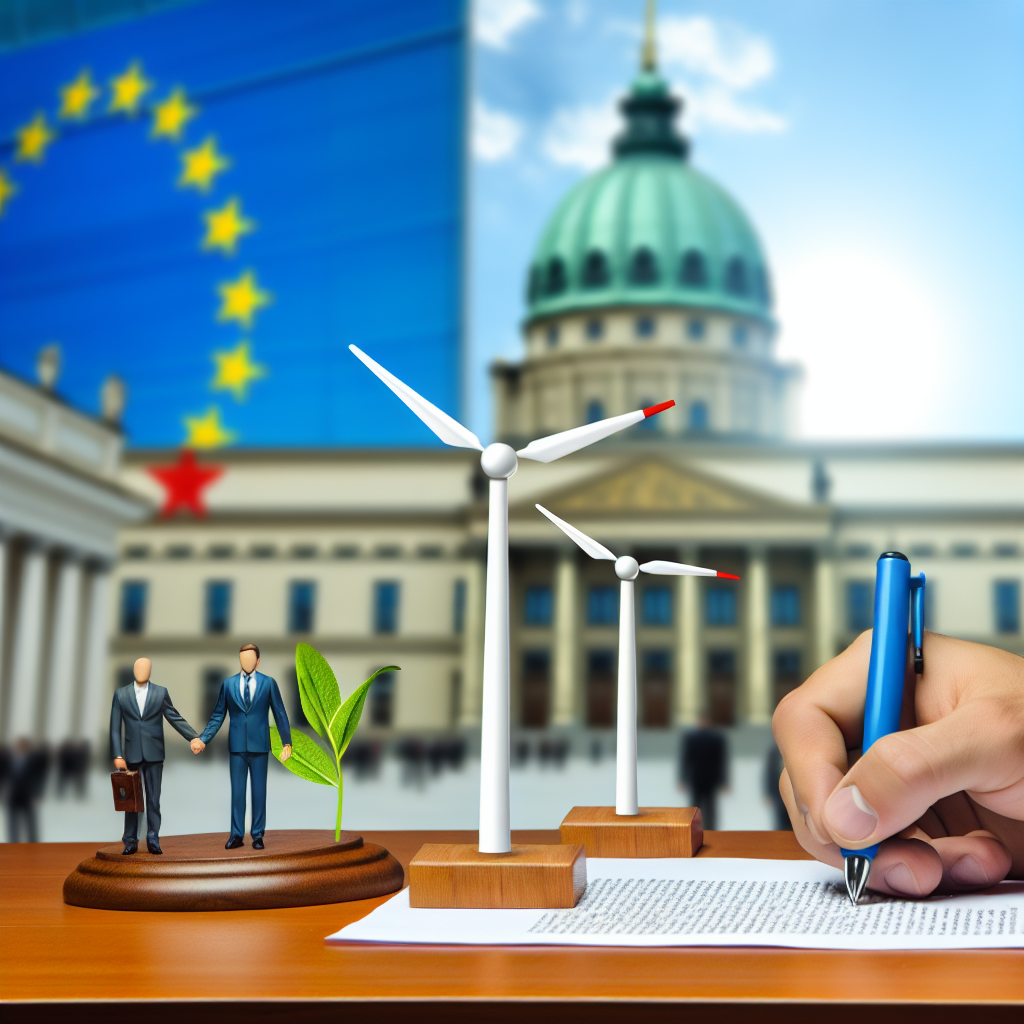
In a significant step towards a sustainable energy future, Germany has passed a new law aimed at accelerating the promotion of renewable energies across the country. This legislation represents a crucial milestone in Germany’s efforts to transition to greener energy sources and reduce its carbon footprint.
Background and Objectives
The primary objective of the new law is to significantly increase the share of renewable energy sources in the national energy mix. The government has set ambitious targets to achieve a majority share of renewable energy in electricity production by 2030, aiming to make the energy sector more environmentally friendly.
Climate change and environmental sustainability continue to be pressing issues, and the German government is committed to addressing them head-on. By focusing on renewables, the law seeks to reduce dependence on fossil fuels, cut greenhouse gas emissions, and promote sustainable growth.
Key Provisions of the Law
The law includes a host of measures designed to facilitate the expansion and integration of renewable energy sources. Firstly, it introduces streamlined processes for obtaining permits for wind and solar projects, thus reducing bureaucratic hurdles and accelerating project timelines.
In addition, financial incentives are introduced to encourage private investment in renewable energy projects. These incentives include tax benefits and subsidies for both new and existing renewable energy infrastructure, making it more attractive for companies and individuals to participate in the green transition.
Focus on Wind and Solar Power
Emphasizing the importance of wind and solar power, the law sets out clear targets for their development. It calls for a significant increase in the construction of offshore and onshore wind farms, as well as an expansion of solar installations on residential and commercial rooftops across the country.
This focus seeks to make these two energy sources the backbone of the renewable energy strategy, providing a stable and sustainable supply of electricity for the future.
Engaging Local Communities and Stakeholders
A key aspect of the legislation is its emphasis on engaging local communities and relevant stakeholders in renewable energy projects. By involving local authorities and citizens in decision-making processes, the law aims to foster a sense of ownership and support for renewable energy developments.
Community engagement is crucial for addressing potential challenges such as land use conflicts and ensuring that projects are carried out in a socially responsible manner.
Long-Term Implications
The new law is expected to have profound implications for Germany’s energy landscape. By aligning with European Union directives and international climate goals, Germany is positioning itself as a leader in renewable energy adoption.
The law aims to create numerous job opportunities in the green energy sector, providing a boost to the economy while simultaneously tackling climate change. As more countries explore sustainable practices, Germany’s progress could serve as a valuable model for others to follow.
Conclusion
In passing this crucial legislation, Germany takes a substantial step towards an environmentally sustainable future. By prioritizing renewable energy, the country not only addresses the urgent need for climate action but also sets the stage for economic development in a fast-evolving global landscape.
This comprehensive approach has the potential to transform the way energy is produced and consumed, ultimately leading to a cleaner and greener planet for generations to come.
„`